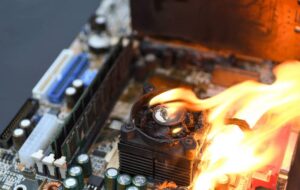Common Failures of Discrete Components
2022-11-25
The selection of components is one of the important steps in the PCB design process. It is worth noting some of the errors that often occur in discrete components. Understanding and paying attention to these errors will effectively help you reduce the impact that may be brought to the board assembly.
What is a discrete component?
Discrete components are the basic components of a circuit with a single function, such as transistors, diodes, resistors, capacitors, inductors, etc. Individually, they are discrete devices. They can be active or passive.
A term opposite to discrete components is integrated circuit, so what is the difference between discrete and integrated circuit?
Integrated Circuits vs. Discrete Components
Integrated circuits are basic circuit components such as transistors, diodes, resistors, capacitors, inductors, etc. made on a small wafer and then packaged to form a unit with certain functions.
The use of integrated circuits can greatly reduce the size of a circuit. However, with a limited area, it is impossible for an integrated circuit to make every part work well. Discrete components, on the other hand, consider only their own performance individually, making them more flexible.
When using discrete components, some reasons may lead to component errors.
Why do discrete component errors occur?
Common sources of errors include voltage fluctuations, component aging, overheating, corrosion, and other causes. To reduce this possibility, the following principles can be improved.
- Choose a reputable supplier
- Beware of counterfeit parts
- Ensure adequate component spacing
- Protect circuits with conformal coatings and surface treatments
- Consider thermal design
Common causes of component damage include voltage breakdown, and current burn-in. In this article, we will focus on common causes of electronic component failure such as capacitors, resistors and inductors.
Common Causes of Capacitor Failure
Capacitors are used in various applications such as: filtering, decoupling, impedance matching, bypassing, etc. The causes of capacitor failure are:
- Overload currents and voltages
- Temperature variations
- Dielectric failure
Signs of capacitor failure
- Oil leakage
- Deformation due to internal fluid leakage from overheating
- Scratching of wires
- Protruding cap, rupture, etc.
- Increase in capacitor temperature
Common causes of capacitor failure
Resistors are mainly used in circuits to regulate and stabilize current and voltage, as shunts and voltage dividers, and also as circuit matching loads. Causes of resistor failure include
- Shock and vibration
- Dust buildup, ambient humidity, insulation problems, etc.
- Aging
- Overheating can cause open circuits in wirewound resistors
- Resistor material problems
Causes of inductor failure
Inductors in the circuit mainly play a role in filtering, oscillation, delay, trapping, etc. The most common role of inductors in the circuit is to work with capacitors to form LC filter circuits. Capacitors have the characteristic of “blocking DC, passing AC”, while inductors have the function of “passing DC, blocking AC”.
Thermal stress due to open circuit is one of the main causes of inductor failure. Overheating inductors are mainly characterized by shorted coils. Current spikes and melting of the insulator.
To summarize
It is critical to consider these failure modes before selecting components for your board.
Choose an exprienced PCB manufacturer for your PCB project that can provide high quality and reliability, KingPCB is fully capable of meeting your PCB manufacturing needs.
Contact KingPCB now for a free quote with PCB file inspection.



